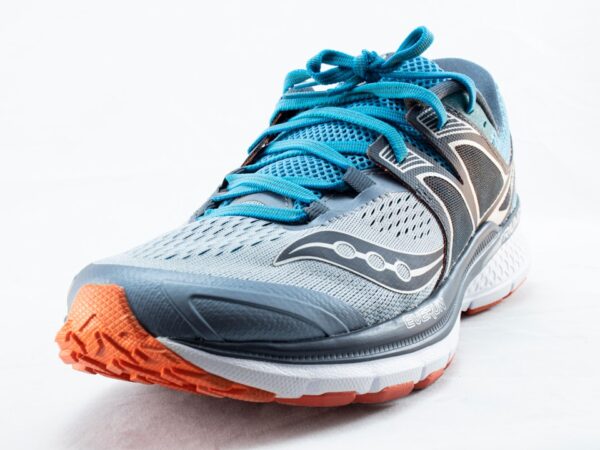10 Ways to Reduce Anxiety: Tips for a Calmer Mind
Deep breathing techniques are effective methods for managing stress and anxiety. During periods of stress, breathing often becomes shallow and rapid, which can intensify feelings of anxiety. By employing deep breathing techniques, individuals can slow their breath and activate the body’s relaxation response.
Diaphragmatic breathing, also referred to as belly breathing, is a widely used deep breathing technique. To practice this method, one should sit comfortably and place one hand on the chest and the other on the abdomen. When inhaling deeply through the nose, the abdomen should rise, pushing out the hand placed there.
Upon exhaling slowly through the mouth, the abdomen falls. This technique engages the diaphragm and promotes a sense of calm and relaxation in the body. The 4-7-8 breath, developed by Dr.
Andrew Weil, is another deep breathing technique. This method involves inhaling through the nose for a count of 4, holding the breath for a count of 7, and exhaling slowly through the mouth for a count of 8. The 4-7-8 breath is known to calm the nervous system and can be particularly beneficial for promoting sleep and relaxation.
Key Takeaways
- Deep breathing techniques can help reduce stress and promote relaxation by focusing on slow, deep breaths.
- Mindfulness meditation can improve mental well-being by focusing on the present moment and letting go of negative thoughts.
- Regular exercise can boost mood and reduce stress by releasing endorphins and providing a healthy outlet for tension.
- Limiting caffeine and alcohol intake can help regulate mood and improve sleep quality by reducing stimulant intake.
- Prioritizing sleep and rest is essential for managing stress and maintaining overall well-being.
Mindfulness Meditation
The Practice of Mindfulness Meditation
This practice involves bringing one’s attention to the present moment without judgment. One common mindfulness meditation practice is focused attention meditation, where individuals focus their attention on a single point of focus, such as their breath or a specific sensation in the body.
Overcoming Distractions
When the mind inevitably wanders, practitioners are encouraged to gently bring their attention back to the chosen point of focus without judgment.
Types of Mindfulness Meditation
Another mindfulness meditation practice is loving-kindness meditation, where individuals cultivate feelings of compassion and love towards themselves and others. This practice has been shown to increase feelings of positivity and reduce symptoms of anxiety and depression.
Regular Exercise

Regular exercise is not only important for physical health but also plays a crucial role in managing stress and anxiety. When we exercise, our bodies release endorphins, which are natural mood lifters that can help to reduce feelings of stress and anxiety. Aerobic exercises such as running, swimming, or cycling have been shown to be particularly effective in reducing symptoms of anxiety.
These types of exercises help to increase blood flow to the brain and release feel-good neurotransmitters that can help to improve mood and reduce feelings of anxiety. In addition to aerobic exercise, activities such as yoga and tai chi can also be beneficial for managing stress and anxiety. These mind-body practices incorporate elements of mindfulness and deep breathing, which can help to promote relaxation and reduce symptoms of anxiety.
Limiting Caffeine and Alcohol Intake
| Metrics | Recommendation |
|---|---|
| Caffeine Intake | Limit to 400mg per day for most adults |
| Alcohol Intake | Limit to 1 drink per day for women and 2 drinks per day for men |
While many people turn to caffeine and alcohol as a way to cope with stress and anxiety, these substances can actually exacerbate symptoms in the long run. Caffeine is a stimulant that can increase feelings of nervousness and agitation, while alcohol is a depressant that can disrupt sleep patterns and contribute to feelings of anxiety. Limiting caffeine intake, especially in the afternoon and evening, can help to promote better sleep and reduce feelings of anxiety.
Instead of reaching for another cup of coffee, consider switching to herbal tea or water to stay hydrated without the stimulating effects of caffeine. Similarly, reducing alcohol intake can have a positive impact on managing stress and anxiety. While alcohol may provide temporary relief from stress, it can ultimately disrupt sleep patterns and lead to increased feelings of anxiety the next day.
Finding alternative ways to relax and unwind, such as taking a warm bath or practicing deep breathing techniques, can be more effective in the long run.
Prioritizing Sleep and Rest
Getting enough quality sleep is essential for managing stress and anxiety. When we are sleep-deprived, our bodies are more susceptible to stress and our ability to cope with challenging situations is compromised. Prioritizing sleep and rest is crucial for maintaining mental well-being.
Establishing a regular sleep routine can help to promote better sleep quality and reduce feelings of anxiety. Going to bed and waking up at the same time each day, even on weekends, can help to regulate the body’s internal clock and improve overall sleep quality. Creating a relaxing bedtime routine can also help to signal to the body that it’s time to wind down and prepare for sleep.
Activities such as reading, taking a warm bath, or practicing relaxation techniques can help to promote relaxation and reduce feelings of anxiety before bedtime.
Seeking Professional Help

When Self-Help Isn’t Enough
Sometimes, managing stress and anxiety on our own is not enough, and seeking professional help can be an important step in finding relief. Mental health professionals such as therapists, counselors, or psychiatrists can provide support and guidance in developing coping strategies and addressing underlying issues contributing to stress and anxiety.
The Benefits of Therapy
Therapy can provide a safe space to explore thoughts and feelings related to stress and anxiety, as well as learn new skills for managing symptoms. Mental health professionals can offer a fresh perspective and help individuals develop a personalized plan to overcome stress and anxiety.
Effective Treatment Approaches
Cognitive-behavioral therapy (CBT) is a particularly effective approach for addressing anxiety by helping individuals identify and change negative thought patterns and behaviors. In some cases, medication may be recommended as part of a comprehensive treatment plan for managing stress and anxiety.
Establishing a Support System
Building a strong support system is an important part of managing stress and anxiety. Having people in our lives who we can turn to for support, encouragement, and understanding can make a significant difference in how we cope with stress. Family members, friends, or support groups can provide a sense of connection and belonging that can help to reduce feelings of isolation and loneliness often associated with stress and anxiety.
Simply having someone to talk to about our feelings can provide relief and perspective on challenging situations. In addition to personal support networks, online resources such as forums or social media groups can also provide opportunities for connecting with others who may be experiencing similar challenges. Finding a community where we feel understood and supported can be an important part of managing stress and anxiety.
In conclusion, managing stress and anxiety requires a multifaceted approach that incorporates various strategies for promoting relaxation, self-care, and seeking support when needed. By incorporating deep breathing techniques, mindfulness meditation, regular exercise, limiting caffeine and alcohol intake, prioritizing sleep and rest, seeking professional help, and establishing a support system, individuals can develop a comprehensive toolkit for managing stress and anxiety in their lives. It’s important to remember that finding what works best for each individual may take time and experimentation, but with persistence and support, it is possible to find relief from the burdens of stress and anxiety.
If you’re looking for more tips on reducing anxiety, check out this article on Golkakra. They offer helpful advice and techniques for managing anxiety and finding peace of mind. Whether it’s through mindfulness practices, exercise, or therapy, there are many ways to address and alleviate anxiety. Take a look at their article for more insights and strategies to help you feel calmer and more in control.
FAQs
What is anxiety?
Anxiety is a natural response to stress or a perceived threat. It can manifest as feelings of worry, fear, or unease.
What are the symptoms of anxiety?
Symptoms of anxiety can include restlessness, irritability, difficulty concentrating, muscle tension, and sleep disturbances.
How can I reduce anxiety?
There are several strategies to reduce anxiety, including practicing relaxation techniques, engaging in regular physical activity, getting enough sleep, and seeking support from friends, family, or a mental health professional.
What are some relaxation techniques to reduce anxiety?
Relaxation techniques such as deep breathing, meditation, progressive muscle relaxation, and mindfulness can help reduce anxiety.
How does physical activity help reduce anxiety?
Physical activity can help reduce anxiety by releasing endorphins, which are natural mood lifters, and by providing a distraction from worries and stress.
What role does sleep play in managing anxiety?
Getting enough quality sleep is important for managing anxiety, as sleep deprivation can exacerbate feelings of anxiety and stress.
When should I seek professional help for anxiety?
If anxiety is significantly impacting your daily life and functioning, it is important to seek help from a mental health professional. This may include a therapist, counselor, or psychiatrist.










